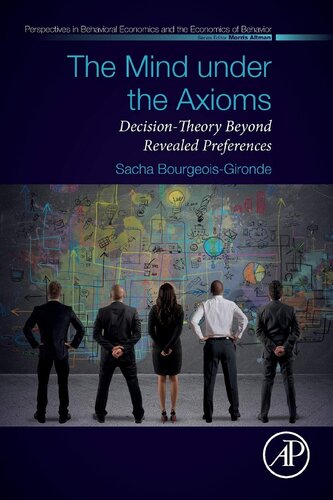

Most ebook files are in PDF format, so you can easily read them using various software such as Foxit Reader or directly on the Google Chrome browser.
Some ebook files are released by publishers in other formats such as .awz, .mobi, .epub, .fb2, etc. You may need to install specific software to read these formats on mobile/PC, such as Calibre.
Please read the tutorial at this link: https://ebookbell.com/faq
We offer FREE conversion to the popular formats you request; however, this may take some time. Therefore, right after payment, please email us, and we will try to provide the service as quickly as possible.
For some exceptional file formats or broken links (if any), please refrain from opening any disputes. Instead, email us first, and we will try to assist within a maximum of 6 hours.
EbookBell Team

4.4
72 reviewsThe Mind under the Axioms reviews two basic ingredients of our understanding of human decisions – conative aspects (preferences) and cognitive aspects (beliefs). These ingredients are axiomatized in modern decision theory in the view to obtain a formally and empirically tractable representation of the decision-maker. The main issue developed in this book is the connection between realistic and testable psychological features and the descriptive component of abstract axioms of rationality. It addresses three main topics for which the interaction between axiomatization and psychology leads to potential new developments in experimental decision-theory and puts strictures on the standard revealed preference methodology prevailing in that field. The possibility of a cardinal representation of preferences is discussed. Different ways of accounting for incomplete preferences, and in which sense, are analysed. Finally, the conditions of separability between preferences and beliefs, such as prescribed by axioms of state-independence, are submitted to actual and potential tests. The book offers a bridge between the disciplines of decision-theory, psychology, and neuroeconomics. It is thus relevant for those, in psychology and cognitive sciences, who are sometimes put off by the high degree of formalism and abstraction in decision-theory, that seems to lie beyond the reach of psychological realism. It also aims to convince those in decision-theory for whom psychological realism and empirical testability should not constrain the modelling enterprise that conceptual clarification can come from attempted experimentation.